‘Blue. What hides the horizon?’ is written both in Catalan and English and all the benefits go to the Spanish NGO Open Arms.
‘Blue’ is much more than just a tale. It is a social report that wants to reach as many people as possible in order to keep the memory of those who lose their lives crossing the Mediterranean. Its authors, two language teachers, Mònica Ortega and Laia Roca, could not imagine that the four-handed story they wanted to write would have such an impact. First of all, they wrote it for their children’s school, but considering the outcome, they saw the need to go further and make the project bigger.
The tale illustrations, created by Gemma Aguasca, fill the book with the blue of the sea with images full of tenderness that hide the tragic reality. As Mònica points out, the tale can be interpreted in many ways according to if it is read by a child or young audience: “If a toddler reads it, he will enjoy the images - which are super cute - and will make a more superficial reading. If a 9-year-old reads it, it can answer the questions he might have”.
Three axes of complaint
Through the tale’s main characters, ‘Blue’ raises the alarm in three directions. Firstly, with regard to the tons of dirt that we throw into the sea; secondly, and most importantly, it condemns the unceasing deaths in the Mediterranean; and finally, it defends the right to the memory of the dead so that they are not forgotten.
In this sense, Monica recalls that “their lives are as valuable as ours and they fall into oblivion. We are used to hear that numbers of people die, they are not people with names and faces, but they have them. They are 56 victims, 115 victims… so we forget that they actually are people”.
It includes a guide for parents and teachers
The tale wants to become an educational tool useful for teachers and parents. Thus, it includes a glossary of terms and a didactic guide produced by Open Arms so that teachers can use them to answer the possible questions from young readers.
“The tale has a higher language and purpose because our message is aimed to the parents. Through the tale perhaps the issue enters into the houses to be talked about, raise awareness and maybe make parents think it twice when they make comments regarding this people”, explains Mònica, one of the tale’s authors.
Now the efforts are focusing on making the project as bigger as possible and spread the word: “At least, we want a copy of the book in every school of Catalonia, even though in a PDF version, and in every library so that children can really know what is beyond the horizon”.
Profits to Open Arms
The book can be bought in several points of sale: Espai Contrabandos (Barcelona), Racó de les Paraules (Sant Joan de Vilatorrada), Muntanya de llibres (Vic), Gralla (Granollers), Geli (Girona), La Ciutat Invisible (Barcelona), Taifa (Barcelona) and Pol·len edicions (Barcelona). As of february, it will be available in other libraries.
All the benefits will go to Open Arms, although for the authors and the NGO, profits are not the main goal, but that the message reaches as many people as possible: “You end up finding the money, the most important thing about this project is to spread the word, to keep it in mind”, specifies Mònica.
The bottom of the sea as the main point
‘Blue’ takes the readers to a landscape of garbage. Through the main characters, the young ones will discover a number of beings responsible for disposing of garbage and making replicas at the bottom of the sea. One of these beings is water, which will sing a song about the people who lose their lives trying to cross the Mediterranean Sea.
The tale has been made possible thanks to a crowdfunding initiative that has allowed the funds raising to pay part of the book’s printing costs. It has also been sponsored by Pol·len edicions, a publishing cooperative placed in Barcelona that publishes critical thinking books following co-publication criteria.

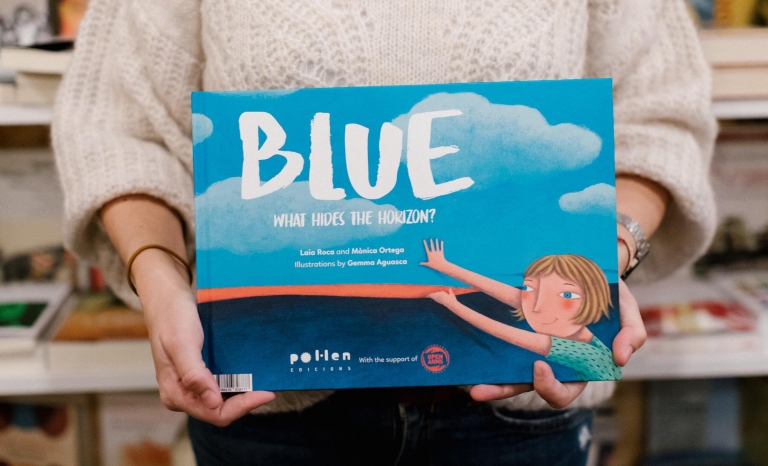
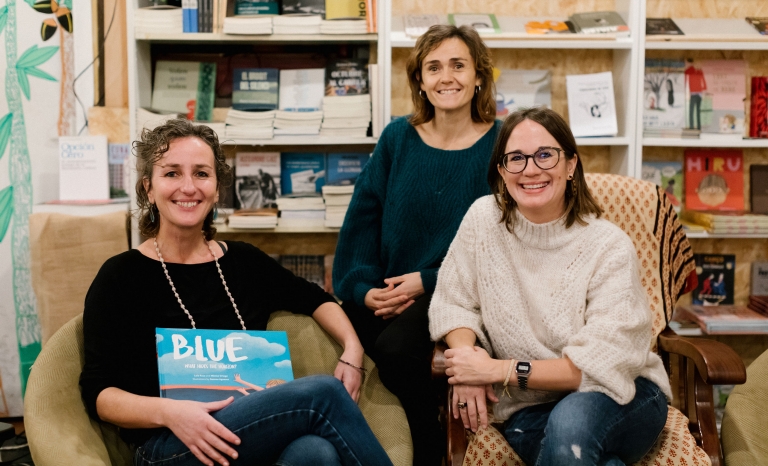
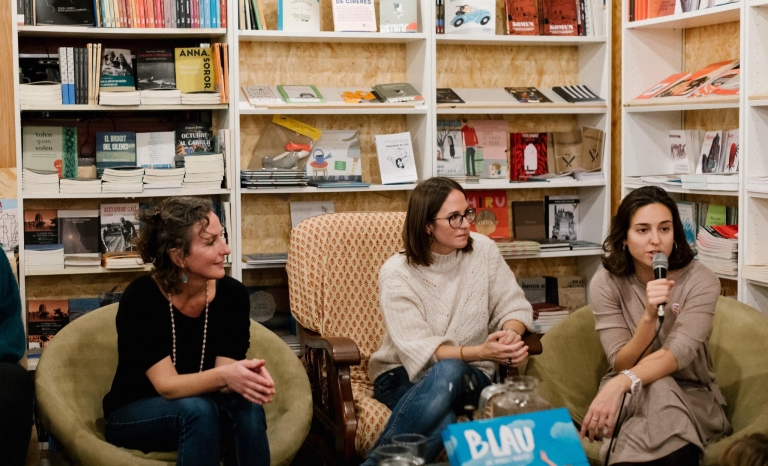
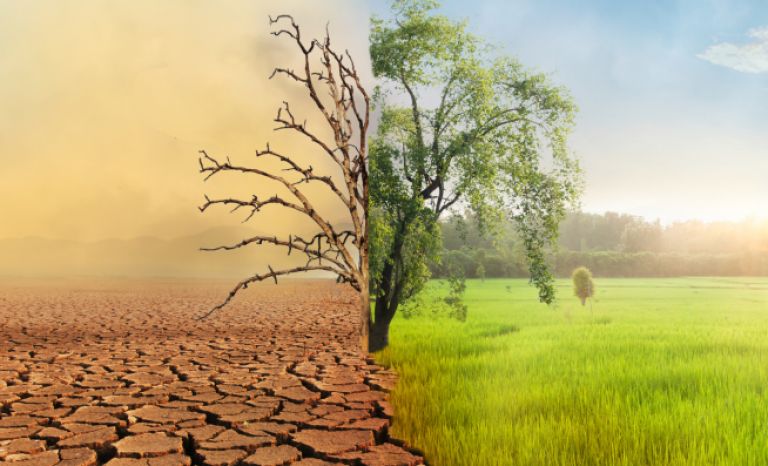
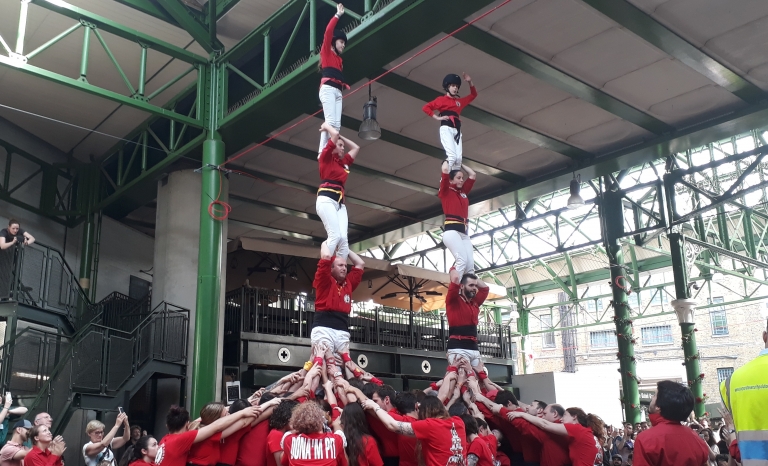
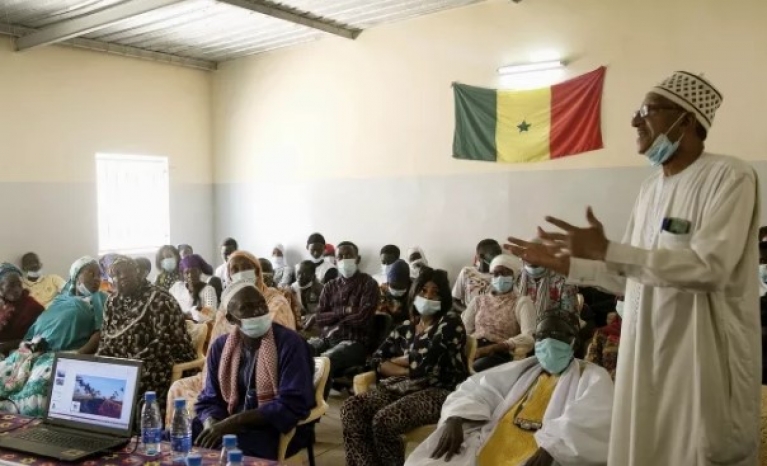
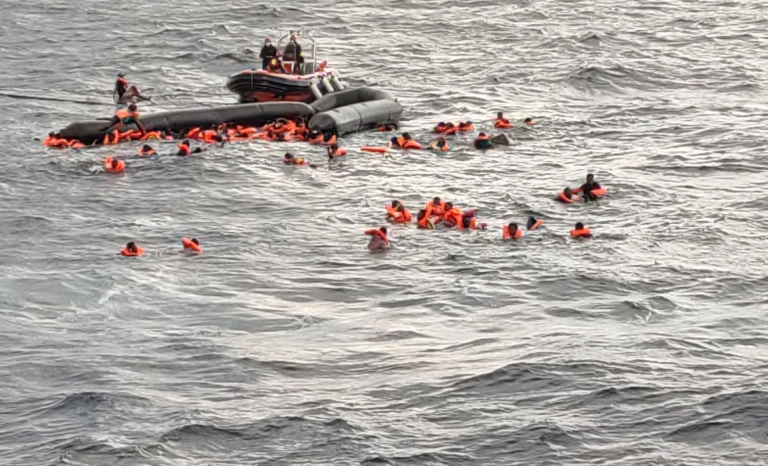



Add new comment